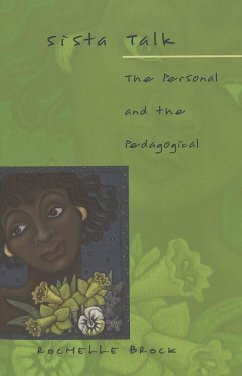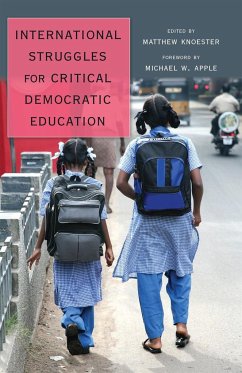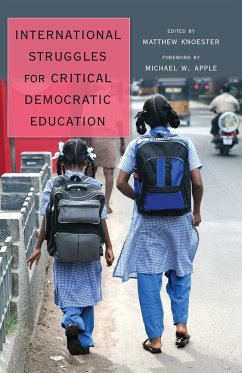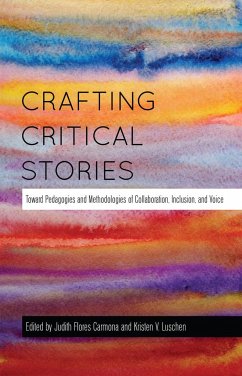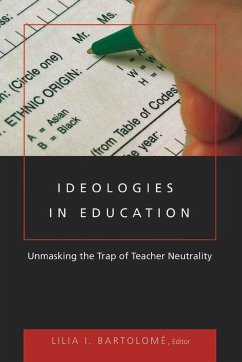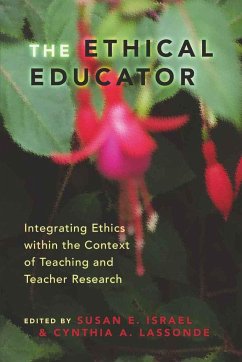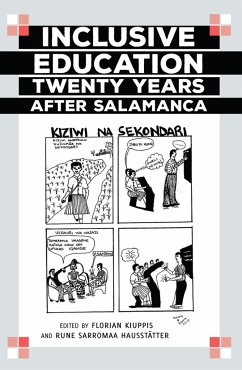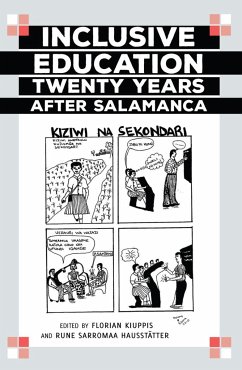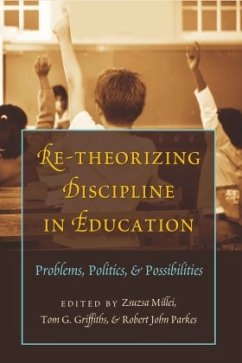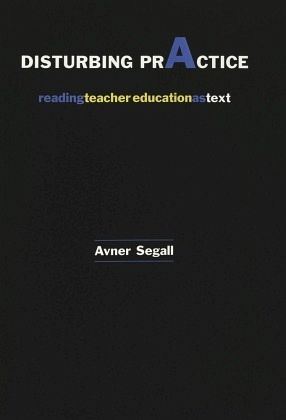
Disturbing Practice
Reading Teacher Education as Text
Versandkostenfrei!
Versandfertig in 6-10 Tagen
36,55 €
inkl. MwSt.

PAYBACK Punkte
0 °P sammeln!
Disturbing Practice: Reading Teacher Education as Text is a critical study of learning to teach. Following six prospective teachers through their twelve-month university- and practicum-based experiences, Avner Segall explores how particular versions and visions of education, teaching, and learning are made possible in preservice education and what they, in turn, make possible for those learning to teach. Using critical lenses to disturb current practices of teacher education, this book extends traditional explorations of how prospective teachers learn to manage ideas and theories in teacher ed...
Disturbing Practice: Reading Teacher Education as Text is a critical study of learning to teach. Following six prospective teachers through their twelve-month university- and practicum-based experiences, Avner Segall explores how particular versions and visions of education, teaching, and learning are made possible in preservice education and what they, in turn, make possible for those learning to teach. Using critical lenses to disturb current practices of teacher education, this book extends traditional explorations of how prospective teachers learn to manage ideas and theories in teacher education classrooms to an examination of how the use of ideas and theories in those very classrooms manages those who attempt to engage them. In doing so, this book highlights and critically engages a variety of issues in teacher education to bring more of what is (and what is not) done in preservice education into the fold of the discussion both about and in teacher education. What and how is it that prospective teachers learn, do not learn, and learn not to learn in preservice education? How do the structures, discourses, and practices of teacher education operate to «invite» prospective teachers to learn some things rather than others? What implications do the above have for prospective teachers' own learning in institutions of higher education and for the kind of learning they provide when they become teachers of others?



